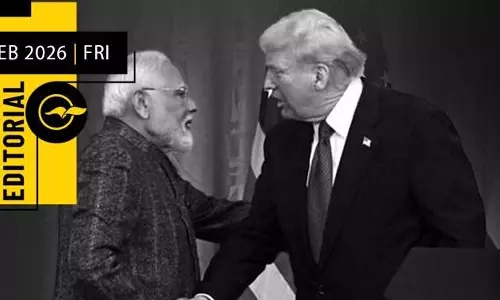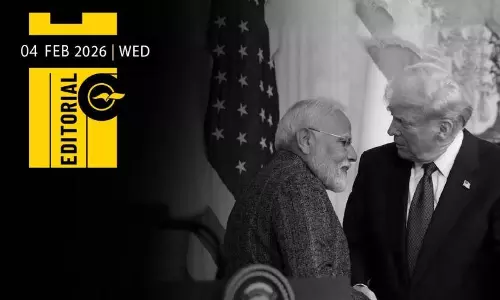
Why fake news spreads like wildfire on social media
text_fieldsLondon: Researchers, including one of Indian-origin, have found that people who repeatedly encounter a fake news item may feel less unethical about sharing it on social media, even when they don't believe the information, according to a new study.
In a series of experiments involving more than 2,500 people, the study published in the journal Psychological Science, found that seeing a fake headline just once leads individuals to temper their disapproval of the misinformation when they see it a second, third, or fourth time.
"The findings have important implications for policymakers and social media companies trying to curb the spread of misinformation online," said study researcher Daniel A. Effron from the London Business School.
"We suggest that efforts to fight misinformation should consider how people judge the morality of spreading it, not just whether they believe it," Effron added.
Across five experiments, Effron and researcher Medha Raj asked online survey participants to rate how unethical or acceptable they thought it would be to publish a fake headline, and how likely they would be to "like", share, and block or unfollow the person who posted it.
As they expected, the researchers found that participants rated headlines they had seen more than once as less unethical to publish than headlines they were shown for the first time.
Participants also said they were more likely to 'like' and share a previously seen headline and less likely to block or unfollow the person who posted it.
What's more, they did not rate the previously seen headline as significantly more accurate than the new ones, the researchers said.
The researchers noted that efforts to curtail misinformation typically focus on helping people distinguish fact from fiction.
Facebook, for example, has tried informing users when they try to share news that fact-checkers have flagged as false.
But such strategies may fail if users feel more comfortable sharing misinformation they know is fake when they have seen it before.
The researchers theorise that repeating misinformation lends it a 'ring of truthfulness' that can increase people's tendency to give it a moral pass, regardless of whether they believe it.
"The results should be of interest to citizens of contemporary democracies," Effron said.
"Misinformation can stoke political polarisation and undermine democracy, so it is important for people to understand when and why it spreads," Effron added.





















